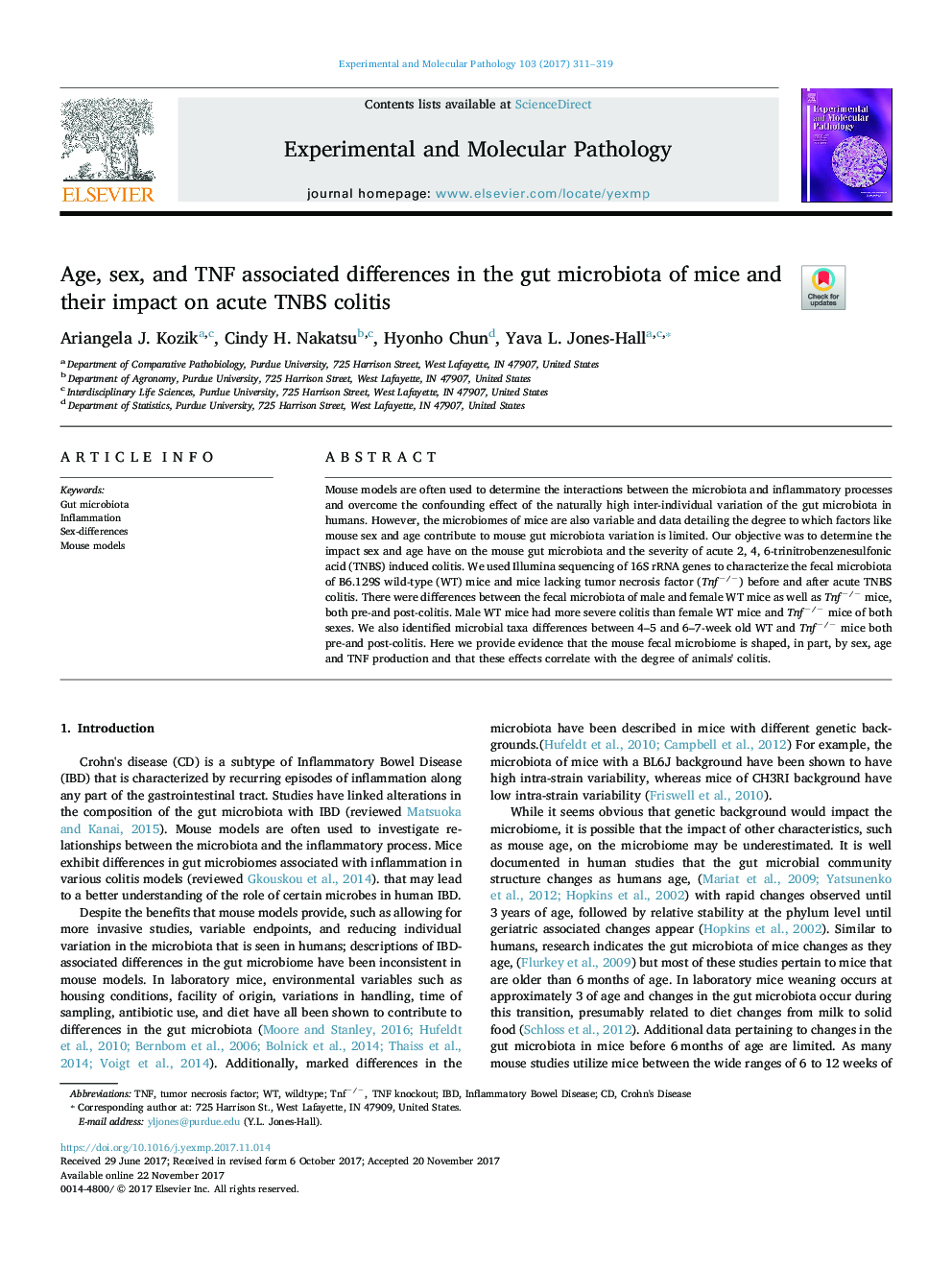| Article ID | Journal | Published Year | Pages | File Type |
|---|---|---|---|---|
| 8624233 | Experimental and Molecular Pathology | 2017 | 9 Pages |
Abstract
Mouse models are often used to determine the interactions between the microbiota and inflammatory processes and overcome the confounding effect of the naturally high inter-individual variation of the gut microbiota in humans. However, the microbiomes of mice are also variable and data detailing the degree to which factors like mouse sex and age contribute to mouse gut microbiota variation is limited. Our objective was to determine the impact sex and age have on the mouse gut microbiota and the severity of acute 2, 4, 6-trinitrobenzenesulfonic acid (TNBS) induced colitis. We used Illumina sequencing of 16S rRNA genes to characterize the fecal microbiota of B6.129S wild-type (WT) mice and mice lacking tumor necrosis factor (Tnfâ/â) before and after acute TNBS colitis. There were differences between the fecal microbiota of male and female WT mice as well as Tnfâ/â mice, both pre-and post-colitis. Male WT mice had more severe colitis than female WT mice and Tnfâ/â mice of both sexes. We also identified microbial taxa differences between 4-5 and 6-7-week old WT and Tnfâ/â mice both pre-and post-colitis. Here we provide evidence that the mouse fecal microbiome is shaped, in part, by sex, age and TNF production and that these effects correlate with the degree of animals' colitis.
Keywords
Related Topics
Life Sciences
Biochemistry, Genetics and Molecular Biology
Clinical Biochemistry
Authors
Ariangela J. Kozik, Cindy H. Nakatsu, Hyonho Chun, Yava L. Jones-Hall,
